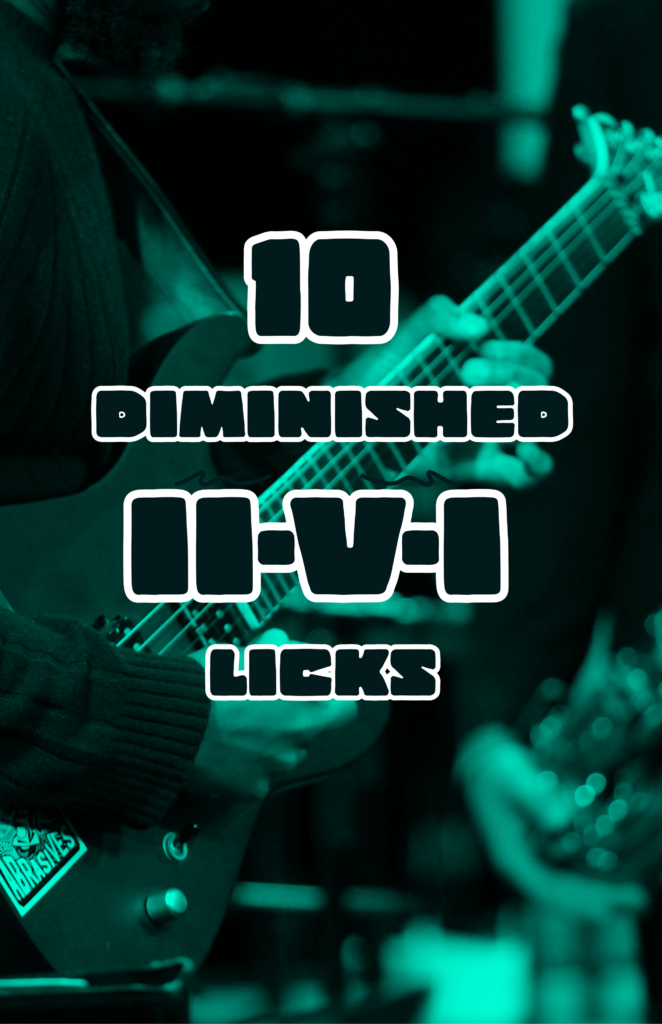
Cecil Alexander is prolific. Right now he just released another course in collaboration with Chad LB entitled “Jazz Guitar Styles”. Meanwhile, I’m only currently checking out this self-released package that he put out last year.
Still, I gotta go one by one, and I’ve been meaning to write about this one since I saw it on Cecil’s social media.
So what do you get here?
As described on his website:
This includes a PDF w/ Notation and TAB of 10 licks that use the Diminished Scale on a II-V-I in C major. Included in the PDF is a link to a Youtube video with short lessons that accompany each phrase, with a section at the end that covers how to practice and apply licks like this so that they influence your playing. There are audio examples in the download folder with each lick played fast and slow.
NOTE: The link to the Youtube Video is on the first page of the PDF
What I like about this release is that it’s kind of in-between a collection of licks and a video lesson. On one hand, some players might just go straight to the PDF and learn the lines from the notation and audio. On the other hand, some might appreciate the video where Cecil shows his exact fingerings and how he thinks about each line. Cecil also include a 6-minute segment where he shares practice tips to really internalize what you’ve learned.
This to me is the biggest value you can get.
It’s one thing to learn new licks, it’s another thing to actually understand what you’re playing. Also, for me I really value the opportunity to get the exact fingerings that a player like Cecil does because it gives me insights in how I might typically do it, and what he does differently. I learn a lot from that. Also the practice tips are great to get beyond only playing licks verbatim as written.
In short, if you like Cecil’s playing and have been curious about how to get the whole diminished scale sound without sounding pattern oriented, this might just be what you’re looking for.
Pros: Great lines, good video explanation and useful resource/lesson for players interested in this sound.
Cons: Some minimal typos in the tablature, no picking directions indicated.
TLDR: Want to play II-V-I lines that include a diminished scale sound? Get this now!
Get this here directly from Cecil: https://www.cecilalexander.com/shop/10-diminished-ii-v-i-licks
Check out my other book, video & course reviews here:
https://azsamadlessons.com/book-reviews/
[Submissions for Review Consideration]
- Are you an author who wrote a jazz, guitar or music book?
- Have you created a DVD or an online video course or subscription based website?
- Would you like me to review your book/course?
Please send me a message at azsamad2 at gmail.com with:
For courses: a link to the course/video/product + access info etc.
For books: a link to the book (Dropbox) or PDF attachment (if it’s small) for review consideration.
Depending on whether I dig the book/course, I’ll let you know if I do plan to review it!
I cannot guarantee a review for every submission & if I’m not too into it, I may opt not to review it. I mean, it’s better to get a good review that for me to write a bad review just because it’s not a match for the kind of stuff I dig right? :p
NOTE: All reviews reflect my honest personal opinion so be aware that I will point out both cool Pros and Cons that I see in the work. You dig?